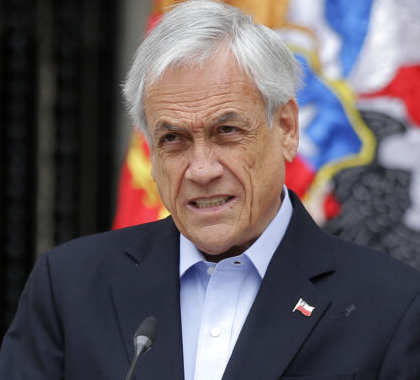Riots in Chile forced Chilean President Sebastian Pinera to announce on that Chile could no longer host a United Nations climate conference scheduled for December. Climate activists are scrambling in disarray, hoping to find a replacement nation to host the Conference of the Parties Climate Conference (COP25) at a future date, but they have themselves to blame for the conference being cancelled. Aggressive Chilean climate policies that have raised energy costs, raised transportation costs, and taken money out of Chilean household budgets sparked the riots that caused the Chilean government to back out of hosting the U.N. conference.
Media outlets are currently claiming income inequality is the reason people in Chile are rioting in the streets. As the same media outlets properly noted last week, however, the protests began in response to fare hikes for the Santiago Metro, which hit low-income people especially hard.
The Metro fare hikes became inevitable after the Chilean government waged war on affordable energy in the name of battling climate change. Metro fares are rising, even as oil and gasoline prices are falling, because government officials in 2018 converted most of the Metro’s energy mix to expensive wind and solar power. The Chilean government also hit conventional power throughout the country with new carbon dioxide taxes, further raising energy and transportation costs for the Chilean people.
Before the Chilean Metro riots, climate activists claimed Chile and its war on conventional energy was a shining example for the rest of the world. The United Nations awarded former Chilean President Michelle Bachelet a Champion of the Earth prize in 2017 for rapidly expanding renewable power in Chile’s energy mix. Renewable power advocates claimedrenewable power for the Santiago Metro and throughout Chile would be inexpensive. Media outlets called Chile a “poster child for renewable energy” and reported renewable energy would likely lower Chilean energy prices. Climate activists therefore believed Santiago would be the perfect place to show off renewable energy and aggressive climate policies at COP25.
Yet coal, oil, and natural gas power most of the world’s energy use because they are much more affordable than wind and solar power. Chile has discovered this the hard way, as Chile’s carbon dioxide taxes and renewable energy programs caused an 18 percent hike in electricity prices during the past year. Chilean officials had announced an additional 9 percent electricity price hike for later in 2019, but cancelled that in response to the ongoing riots. Even before the announced 9 percent electricity price hike, Chilean electricity prices had skyrocketed to the highest in all of South America and among the highest in the entire world.
Chileans are not the first people to riot as a result of rising energy prices caused by climate activist government policies. In France, carbon dioxide taxes imposed on gasoline initiated the 2018 Yellow Vest protests that continue to this day. In Ecuador this October, rioters forced government officials to flee the capital after the government announced a deal with the International Monetary Fund (IMF) that would end price subsidies for conventional energy sources and raise conventional energy prices. The Ecuadorian government, which relies on the IMF for monetary loans, struck its deal with the IMF after the IMF published a paper earlier in 2019 criticizing price subsidies for conventional energy for allegedly increasing carbon dioxide emissions.
Meanwhile, the United Nations is suffering its third major climate conference embarrassment in the past year. U.N. officials were embarrassed at last December’s COP24 in Katowice, Poland, when climate-skeptic Polish government officials hosted the event, and when Solidarity labor union officials held a press conference at COP24 criticizing U.N. climate programs.
Following on the heels of the Poland debacle, Brazilian government officials expressed doubt about an asserted climate crisis, criticized U.N. overreach, and announced it was withdrawing as host of COP25 this December.
And now, after Chilean government officials offered to host COP25 in Brazil’s place and show off their climate and renewable energy programs, those same programs sparked the widespread riots that forced the cancellation of the Santiago climate conference.
After all the pain Chile’s climate programs imposed on the Chilean people, it is only fitting that the United Nations should have to look elsewhere to host their conference.
[Originally Published at The Epoch Times]





